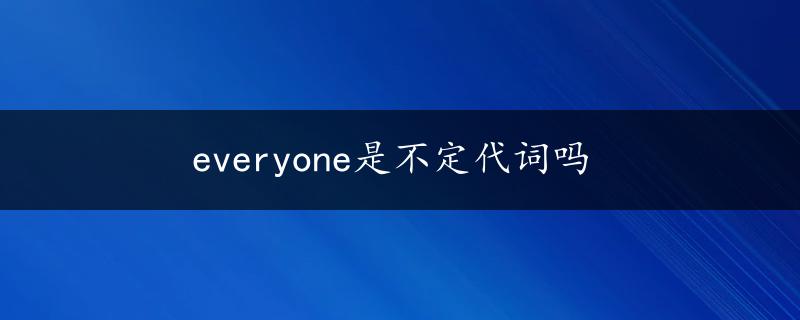Yes, everyone is an indefinite pronoun. Here are some points to explain why:
1. Definition: An indefinite pronoun is a word that does not refer to a specific person or thing, but instead refers to a general or unspecified group or quantity.
2. Usage: Everyone is often used to refer to every person in a group or population, without specifying any particular individuals. For example, "Everyone in the class must read the assigned book."
3. Function: Everyone can serve as a subject, object, or complement in a sentence, and can also be modified by adjectives or adverbs. For example, "Everyone is doing well" (subject); "I invited everyone to the party" (object); "They are all very happy about it, and so is everyone else" (complement).
4. Form: Like other indefinite pronouns, everyone does not have a specific gender or number. It can be used to refer to both males and females, singular or plural groups. For example, "Everyone should bring their own lunch" (referring to a mixed-gender group).
5. Similar pronouns: Other examples of indefinite pronouns include somebody, anybody, nobody, everything, anything, nothing, etc. These words all share the characteristic of referring to a general or unspecified group or quantity, rather than a specific person or thing.






